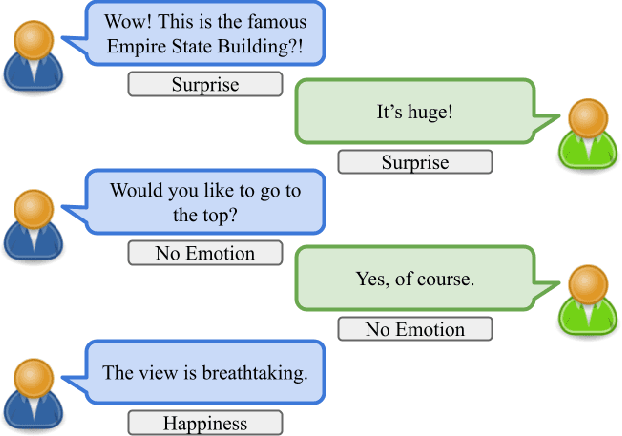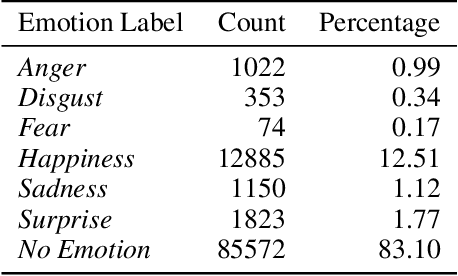Emotion Recognition in Conversation using Probabilistic Soft Logic
Paper and Code
Jul 14, 2022



Creating agents that can both appropriately respond to conversations and understand complex human linguistic tendencies and social cues has been a long standing challenge in the NLP community. A recent pillar of research revolves around emotion recognition in conversation (ERC); a sub-field of emotion recognition that focuses on conversations or dialogues that contain two or more utterances. In this work, we explore an approach to ERC that exploits the use of neural embeddings along with complex structures in dialogues. We implement our approach in a framework called Probabilistic Soft Logic (PSL), a declarative templating language that uses first-order like logical rules, that when combined with data, define a particular class of graphical model. Additionally, PSL provides functionality for the incorporation of results from neural models into PSL models. This allows our model to take advantage of advanced neural methods, such as sentence embeddings, and logical reasoning over the structure of a dialogue. We compare our method with state-of-the-art purely neural ERC systems, and see almost a 20% improvement. With these results, we provide an extensive qualitative and quantitative analysis over the DailyDialog conversation dataset.
 Add to Chrome
Add to Chrome Add to Firefox
Add to Firefox Add to Edge
Add to Edge